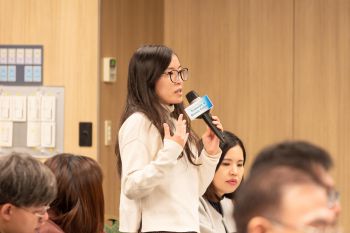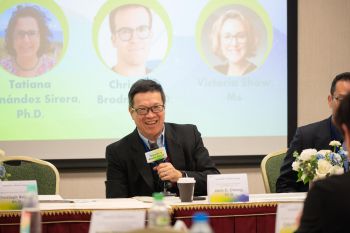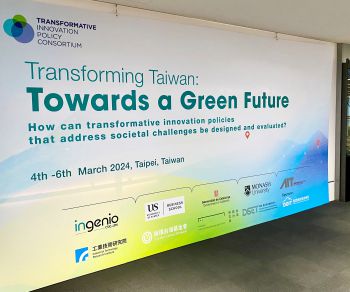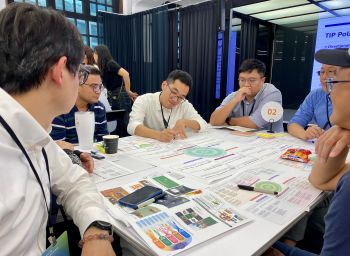News
Transforming Taiwan: Sussex collaborates on innovation for a green future
Posted on behalf of: Transformative Innovation Policy Consortium
Last updated: Wednesday, 13 March 2024




Coordinated by SPRU at the University of Sussex Business School, the Transformative Innovation Policy Consortium (TIPC) is a multi-country initiative that helps global science, technology and innovation agencies design policies and programmes that contribute to societal change.
During a visit to Taiwan this month, the TIPC team met policy leaders to learn about ongoing efforts in green and equitable transitions led by various agencies and networks, including the National Science and Technology Council, Circular Taiwan Network, Taiwan Design Research Institute, Industrial Technology Research Institute and Department of Industrial Technology.
They also held talks with researchers at National Chengchi University’s Graduate Institute of Technology, Innovation & Intellectual Property Management, and the Research Institute for Democracy, Society, and Emerging Technology, Taiwan’s first interdisciplinary institute dedicated to the impacts of emerging technologies on the humanities and society.
In a related workshop, around 50 civil servants, researchers and network builders used participatory tools created by TIPC members in Latin America to reflect on policies and projects in biogas, circular economy and shared mobility.
Victoria Shaw, TIPC’s Programme Director, emphasised the importance of learning from diverse knowledge communities to understand the systemic challenges faced by policymakers today. ‘Through this collaboration, we aim to share methodologies and tools created in other regions, while generating actionable knowledge from the unique challenges and approaches in Taiwan,’ she said.
Tatiana Fernández Sirera, Head of Economic Strategy at the Government of Catalonia and a member of the TIPC delegation, highlighted the significance of a common conceptual framework in facilitating meaningful exchanges. ‘TIPC’s narratives are what makes it possible to have inspiring conversations with people around the globe on how transformative processes can be implemented,’ she said.